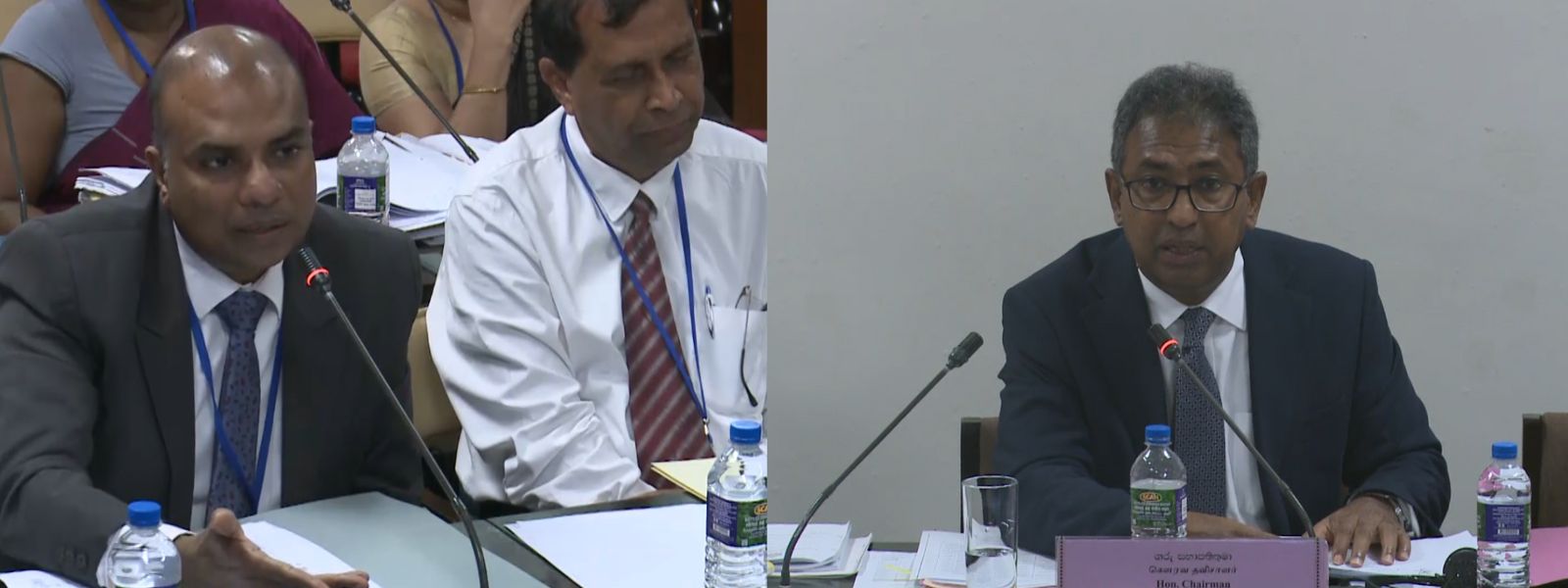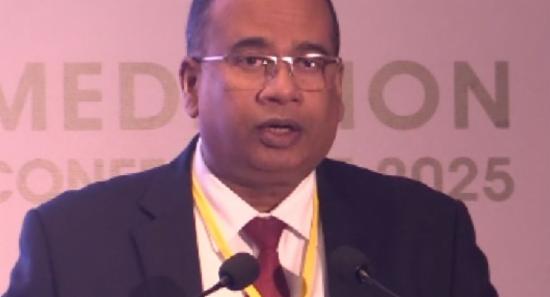.webp)

COPF Questions Rs. 777M Allocation for CIABOC
COLOMBO (News 1st); A heated discussion unfolded during Thursday’s (11) meeting of the Parliamentary Committee on Public Finance, focusing on the proposed budget allocation for the Commission to Investigate Allegations of Bribery or Corruption (CIABOC) under the upcoming 2026 fiscal framework.
Committee Chair Dr. Harsha de Silva raised concerns over the significant increase in salary provisions—from Rs. 354 million under the current framework to Rs. 777 million under the proposed Anti-Corruption Act.
The increase is tied to a planned expansion of CIABOC’s cadre from 489 to 967, including the establishment of regional offices across the country.
CIABOC Director General Ranga Dissanayake explained that the budget reflects anticipated recruitment under Section 26 of the new Act, which allows for the appointment of new staff.
He emphasized the urgency of hiring and training personnel to ensure the commission’s operational readiness by December 2026, as outlined in its Strategic Action Plan.
Treasury officials, including Deputy Secretary A.K. Senaviratne, expressed reservations about allocating the full amount upfront, citing inefficiencies in spending and the risk of unused funds being returned to the Treasury. They proposed a phased funding model, releasing provisions as recruitment progresses.
Dr. de Silva acknowledged the need for a rolling budget, noting that the full Rs. 777 million would not be spent within the year due to the gradual nature of hiring and office setup. He stressed the importance of aligning allocations with actual staffing levels and infrastructure readiness.
CIABOC officials warned that without timely recruitment, the commission’s ability to function would be compromised. Dissanayake stated that he would not assume responsibility for existing staff, including police officers, if they were not formally appointed under the new legal framework.
The committee concluded that while the full allocation is justified in principle, efficient disbursement and accountability must guide the rollout to avoid budgetary lapses.
Other Articles
Featured News





.png )






























.gif)